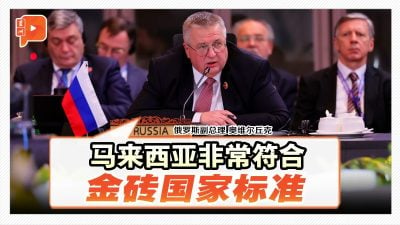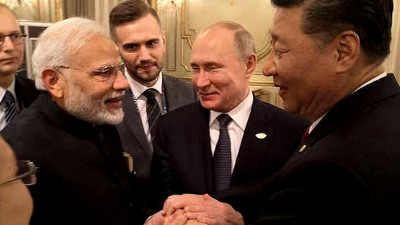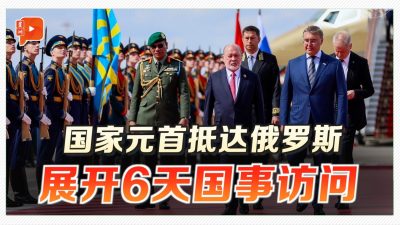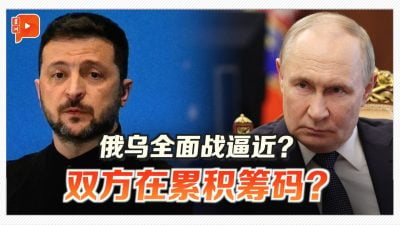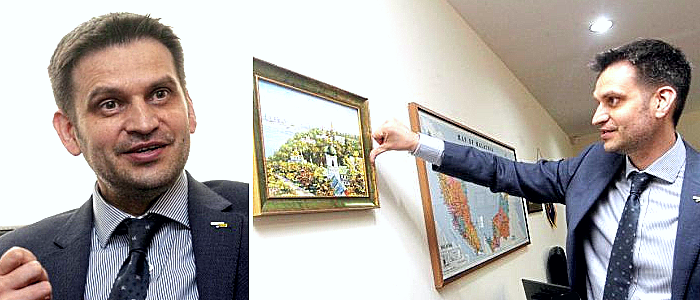
“ Liberty is in our DNA,” Ukraine’s Ambassador to Malaysia Olexander Nechytaylo said.
More than three months since Russia launched its invasion on Ukraine.
Despite changes in the country’s borders over the centuries, Ukraine has nevertheless nurtured its own unique national identity and a strong coherence towards their statehood.
And today, this sovereign nation finds itself once again facing an enormous challenge…
Nechytaylo believes liberty is a universal value to be cherished by the world over, not just his fellow countrymen.
Ukrainians, like anyone else, long for a better living, with their own homes, the ability to send their children safely to school, and the belief that their children will enjoy better lives than them one day.
“Often you come to appreciate freedom only after you have lost it. Just like air.”
‘KGB will blacklist you’
When he was in seventh grade, Nechytaylo went to his grandmother’s house in the countryside for summer vacation.
He didn’t have a good appetite and often did not finish his food, and was therefore reprimanded by his grandmother: “Many people are starving. There were even people in our family starving to death before!
Grandma mentioned the “Great Famine” — which he had never heard of — happening in the country back in 1932 and 1933.
Even as a high school student, he never learned about such a momentous historical event in his history textbook.
All grandma told him was: let bygone be bygone!
Going back to school after the vacation, the curious young man asked his history teacher why the “Great Famine” was never taught at school.
Stunned at first, the teacher then asked him quietly where he had heard it from.
“My grandma told me.”
“For Heaven’s sake, don’t mention this thing in school next time!”
Unperturbed, he went back to his teacher after class, wondering why his most favorite teacher had suddenly changed.
His teacher spoke sternly, “If you mention it again, the KGB will blacklist you. You won’t get to attend university.
“This issue is banned by the government, No more talking about it!”
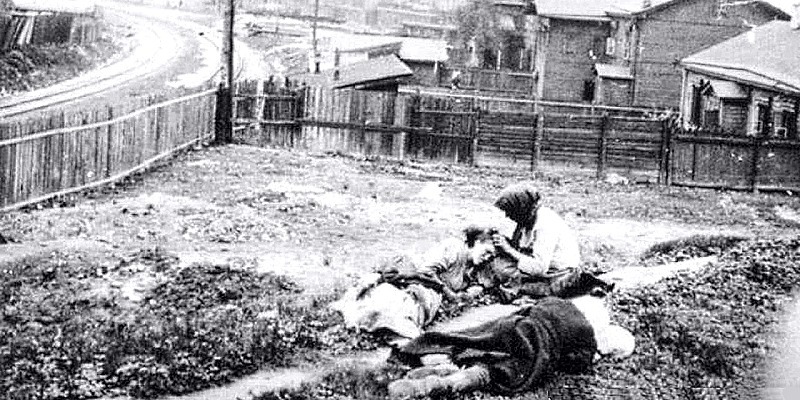
‘Disconnected’
Now relating his teenage encounters sitting inside the Ukrainian Embassy in the heart of Kuala Lumpur, Nechytaylo lamented, “That was the first time in my life I felt ‘disconnected’. What we were taught was actually disconnected from what our country was going through!”
The double information and untruths ignited young Nechytaylo’s curiosity as he embarked on a new journey to look for more answers.
Internet was unavailable at that time, and in Ukraine, a constituent of the USSR, independent and reliable information was a scarce commodity.
So he started listening to the BBC and the German Radio Liberty, and discovered that the world beyond was far larger than what he was taught at school. It was 1987.
The following year, then USSR leader Mikhail Gorbachev embraced the open policy and started to declassify plenty of previously inaccessible information.
Nechytaylo managed to find some information on the Great Famine which had killed a total of seven million people.
“That was a human induced disaster not caused by any natural calamity.”
Back then Joseph Stalin implemented the agricultural collectivization policy, with all farmlands and crops nationalized. At the same time, the country actively promoted heavy industries.
Although so many Ukrainian people perished in the famine, the incident was a complete taboo inside the country.
In 1990, Nechytaylo, now a student at Kyiv University, actively took part in student protest campaigns.
“We believed Ukraine was already an independent country which deserved its own rights in the international community.”
The following year, Ukraine became a fully independent sovereign state.
The Ukrainian flag consists of equally sized horizontal bands of blue and yellow. It’s not the most common navy blue but the more vibrant and brilliant sky blue.
Nechytaylo explained that the blue color on the national flag represents the sky while the yellow signifies wheat and sunflower fields, both Ukraine’s most important cash crops.
Long road to independence
Strategically located on the easternmost end of continental Europe, Ukraine borders the Black Sea.
Boasting a long history of more than 1,500 years, its capital Kyiv was said to have been founded by three brothers, and was named after the eldest of the trio, Kyi. Straddling across Dnieper River, the city is touted as the Cradle of Eastern Slavic Civilization.
There’s a painting at Nechytaylo’s office that embodies the country’s architectural style: a cross on the dome atop the church.
“Traditionally Ukraine is at the crossroads for merchants from Asia, Europe and the Middle East, a confluence of cultures. This has been reflected in our buildings.”
Commanding an enviable geographical location and endowed with rich natural resources, Ukraine has found itself engaged in different wars throughout its history.
Nechytaylo explained that the Russian invasion aside, Ukraine has over the centuries been occupied by different empires, including the Austro-Hungarian Empire and the Polish–Lithuanian Commonwealth.
“It was the battleground of different cultures and national interests, and it took us hundreds of years to become a truly independent nation.”
Nechytaylo believes the pursuit of freedom was already planted in the minds of the Ukranian people very long time ago.
“Our earliest constitution was enacted in 1710, earlier than the United States, while the Russian serfdom system was abolished only in 1861.”
Ukraine’s first attempted independence movement took place in 1917. After the Bolshevik Revolution, Finland, Poland and Ukraine declared independence from Russia, and were recognized as independent states by Bolshevik Party the following year.
But after only a couple of years, Ukraine for some reasons joined the Soviet Union in 1922.
“Ukraine enjoyed a very high degree of self governance, and many might not be aware that we were actually one of the founding members of the United Nations after the second world war in 1945.”
Ukraine became a truly independent and neutral sovereign state after the dissolution of the Soviet Union in 1991, and was a signatory of the Treaty on the Non-Proliferation of Nuclear Weapons (NPT).
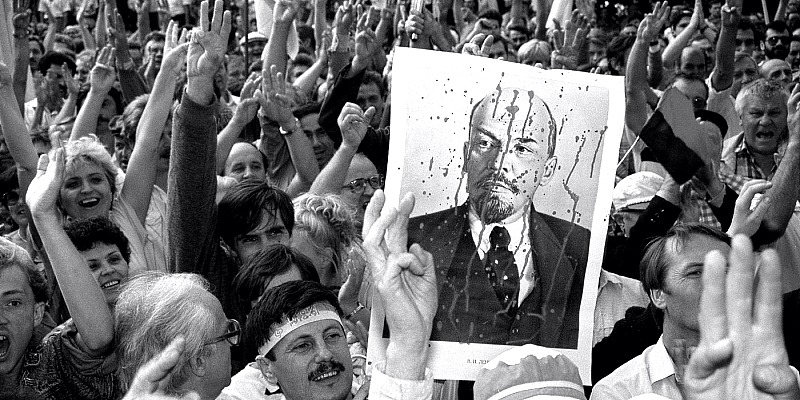
‘No one has beaten us’
Nechytaylo insisted that throughout the long history of Ukraine, it has never invaded any single country or sabotage the interests of another sovereign state.
“On the contrary, if anyone invades us, like what’s happening now, we will surely fight back.
“For so many years and centuries no one has beaten us!”
It is hard to imagine how the people in a war spend their days, definitely not for people like us who are living a peaceful life thousands of miles away in Malaysia.
“I never thought there would be a war.”
Nechytaylo said when his grandparents told him about the wars in the past, he tried to understand but found it very difficult to imagine, as even the 1991 independence was gained in a fairly civilized manner.
To him, and many others in Ukraine, the war of such a massive scale today was something no one had thought of.
“We have taken peace for granted, thinking it’s something bestowed upon us without any effort.”
More than 11 million Ukrainians have been displaced by the war today, marking the biggest humanitarian crisis in Europe since the end of the second world war.
Nechytaylo reiterated that it never once crossed his mind that a war would happen in his country in his lifetime.
“This is our country, our homeland, our children, our homes. We have been living here for generations and will never ever give it up.”
He asserted that not a single imperialist state could win a war. For example, when the United States invaded Vietnam, Iraq and Afghanistan, it failed to defeat the people in those countries. Even here in Malaysia, the British had to leave eventually.
“They won’t conquer the local people.”
And talking about defending one’s own country, Nechytaylo insisted that there’s no other alternative no matter how heavy the price is.
‘All nations, big or small, are equal’
The Russia-Ukraine war could be traced back to the 2014 Crimean war and the war in Donbas. On July 17 that year, Malaysia Airlines flight MH17 was downed by a Buk missile while flying over eastern Ukraine, all 298 onboard killed.
“One of the goals of my tenure is to see that all war criminals are apprehended.”
On the notice board of the Ukrainian Embassy in KL is a reminder of this tragic incident, with the pictures of three Russian and one Ukrainian separatists. Legal proceedings are on-going at the International Court of Justice in The Hague, and Nechytaylo hopes a final verdict could be reached latest by early next year so that those responsible would be brought to book.
Nechytaylo had a meeting with the families of MH17 victims after his posting here in 2016.
“They wanted a conclusion, and answers to the tragedy. Who did it? Why? Who pushed that button? Who gave the order? We need the answers!”
As for the war with Russia, Nechytaylo talked of how Malaysians should see it.
“I think you should not see it just as a war between the two countries of Russia and Ukraine, but as an issue of world order related to all nations.”
No country should enforce its rules on a different country against the international law, as this will ruin the world order erected after WWII.
Nechytaylo emphasized that the United Nations was established to prevent any more military conflicts or wars, while the international law is founded on the conviction that all nations, big or small, are equal.
“Big countries must not be accorded more powers!”
Malaysia condemned the United States for its invasion of Grenada in 1983, and later Panama, Iraq and Afghanistan, and Nechytaylo felt that this showed Malaysia was consistent in upholding the international law.
“It’s 21st century and a war shouldn’t have taken place!”
There are ways to settle things in more civilized manners, such as the dispute with Singapore over Pulau Batu Puteh.
“If we can’t settle the dispute ourselves, bring it to the ICJ. This is the civilized way of settling things, not waging a war!”
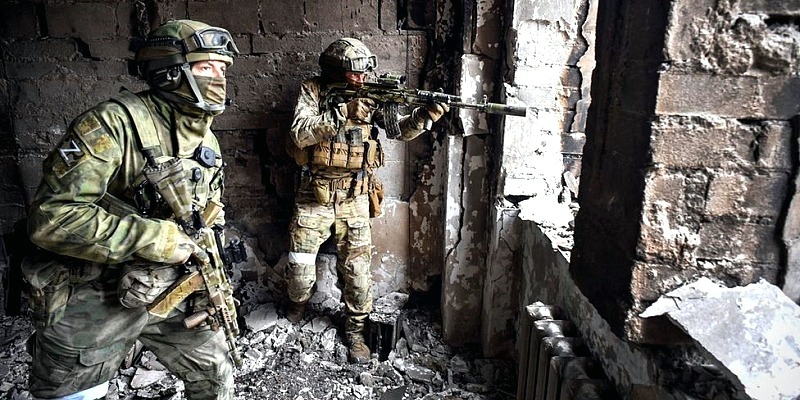
ADVERTISEMENT
ADVERTISEMENT






